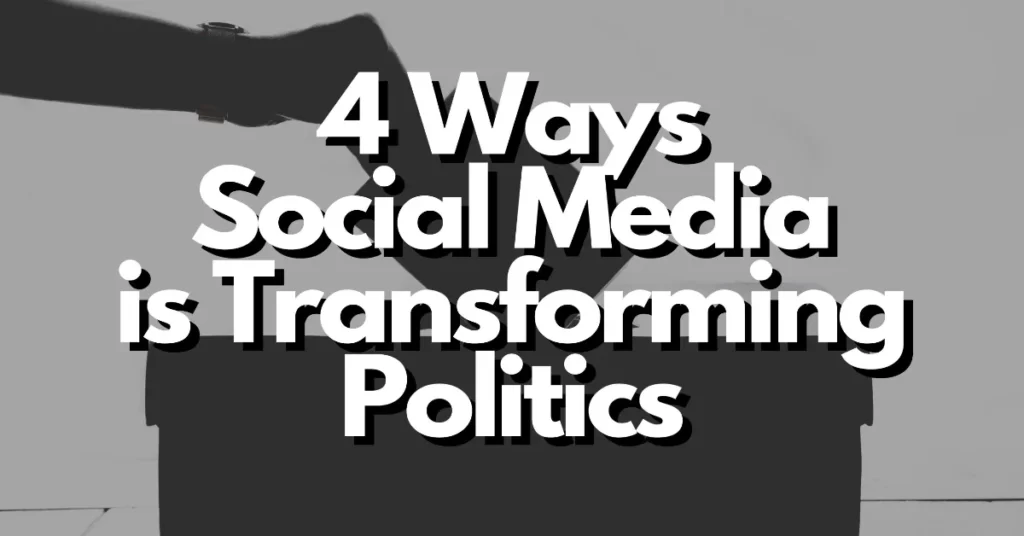Social media has revolutionized various aspects of our lives, including the realm of politics. In this blog post, we will explore four significant ways in which social media is transforming the world of politics, from campaign strategies to voter engagement and beyond.
The Impact of Social Media on Political Communication
Social media has transformed the way we communicate about politics. With the rise of social media platforms like Facebook, Twitter, and Instagram, people now have access to a vast amount of information on politics and can engage in political conversations with ease.
The impact of social media on political communication has been significant, with politicians and political parties using social media as a tool to reach out to voters and engage them in political discourse.
Social Media’s Role in Shaping Political Campaigns
Social media has revolutionized political campaigning. Political campaigns now use social media to reach voters directly, communicate their message, and mobilize supporters. Social media platforms provide politicians with a powerful tool to engage with potential voters in real-time and at a scale that was previously impossible.
Social Media as a Platform for Political Activism
Social media has become a platform for political activism, allowing individuals to voice their opinions, mobilize supporters, and participate in political protests. Social media has played a significant role in organizing political protests around the world and bringing attention to political issues that might otherwise have gone unnoticed.
Social Media’s Influence on Political Discourse and Public Opinion
Social media has a profound impact on political discourse and public opinion. The speed and reach of social media mean that political news and opinions can spread rapidly, often leading to polarization and the spread of misinformation. Social media has also given a voice to marginalized groups, allowing them to participate in political discourse and shape public opinion.
Challenges and Implications of Social Media in Politics
Despite the many benefits of social media in politics, it also poses significant challenges. Social media platforms are susceptible to the spread of fake news and propaganda, which can have a detrimental impact on political discourse and public opinion.
Additionally, social media algorithms can create echo chambers, where individuals are only exposed to opinions that align with their own, leading to polarization and the spread of misinformation.
The implications of social media in politics are significant, and it is crucial that we continue to explore its impact on political communication and take steps to mitigate its negative effects.
Conclusion
The world of politics is constantly evolving, and social media has become an influential force in shaping political landscapes. As we have seen in this blog post, social media has transformed politics in numerous ways, from changing campaign strategies to revolutionizing voter engagement and mobilization.
With the increasing ubiquity and impact of social media, it is imperative for political actors, designers, and web developers to stay updated with the latest trends and techniques in order to effectively navigate this new political landscape.

